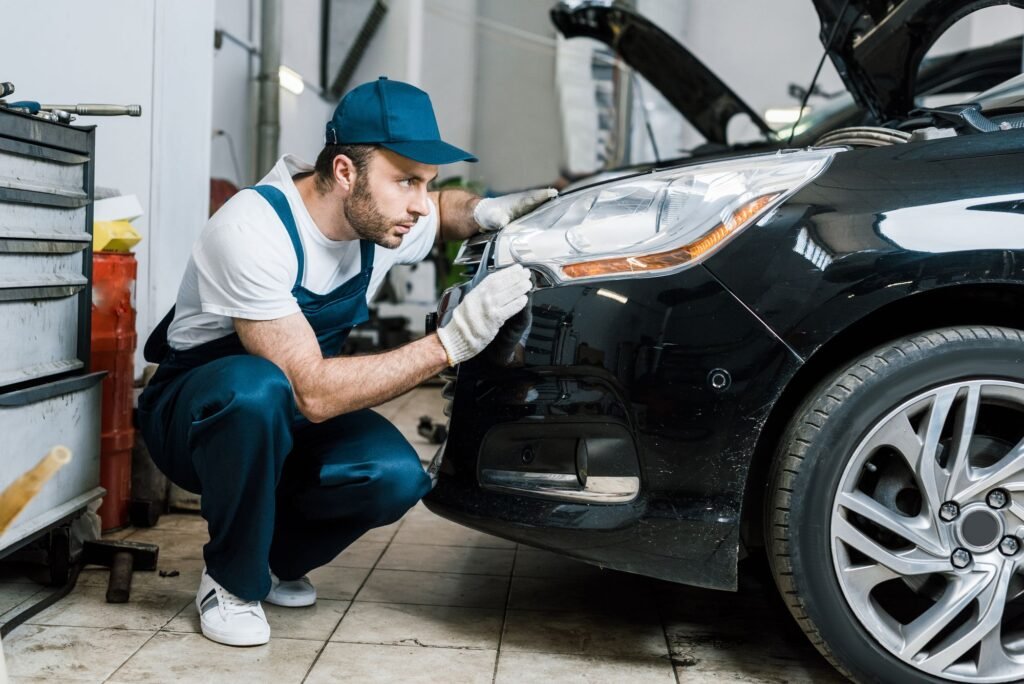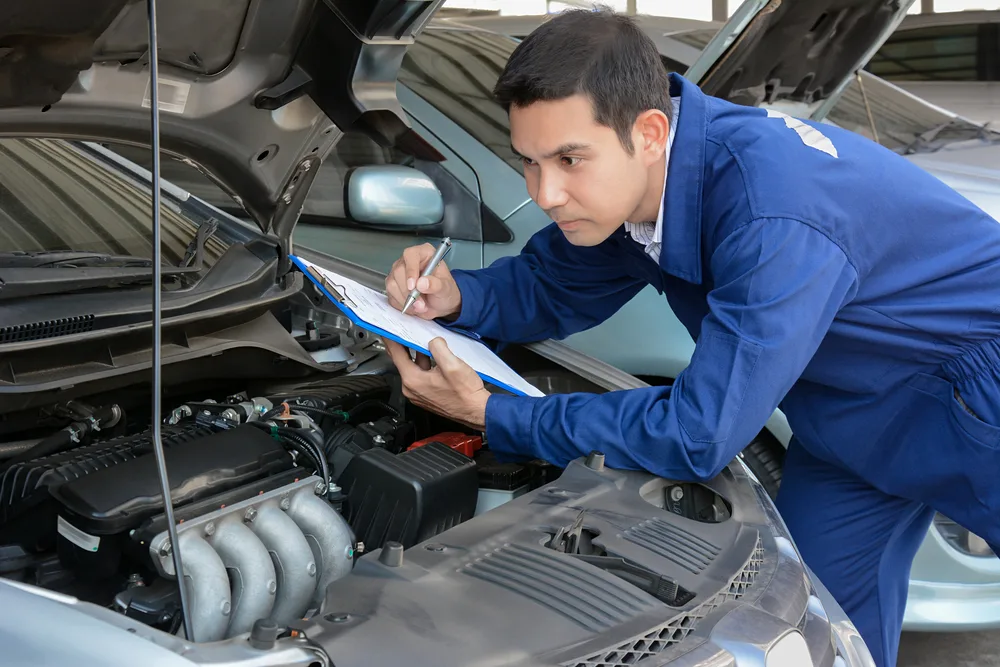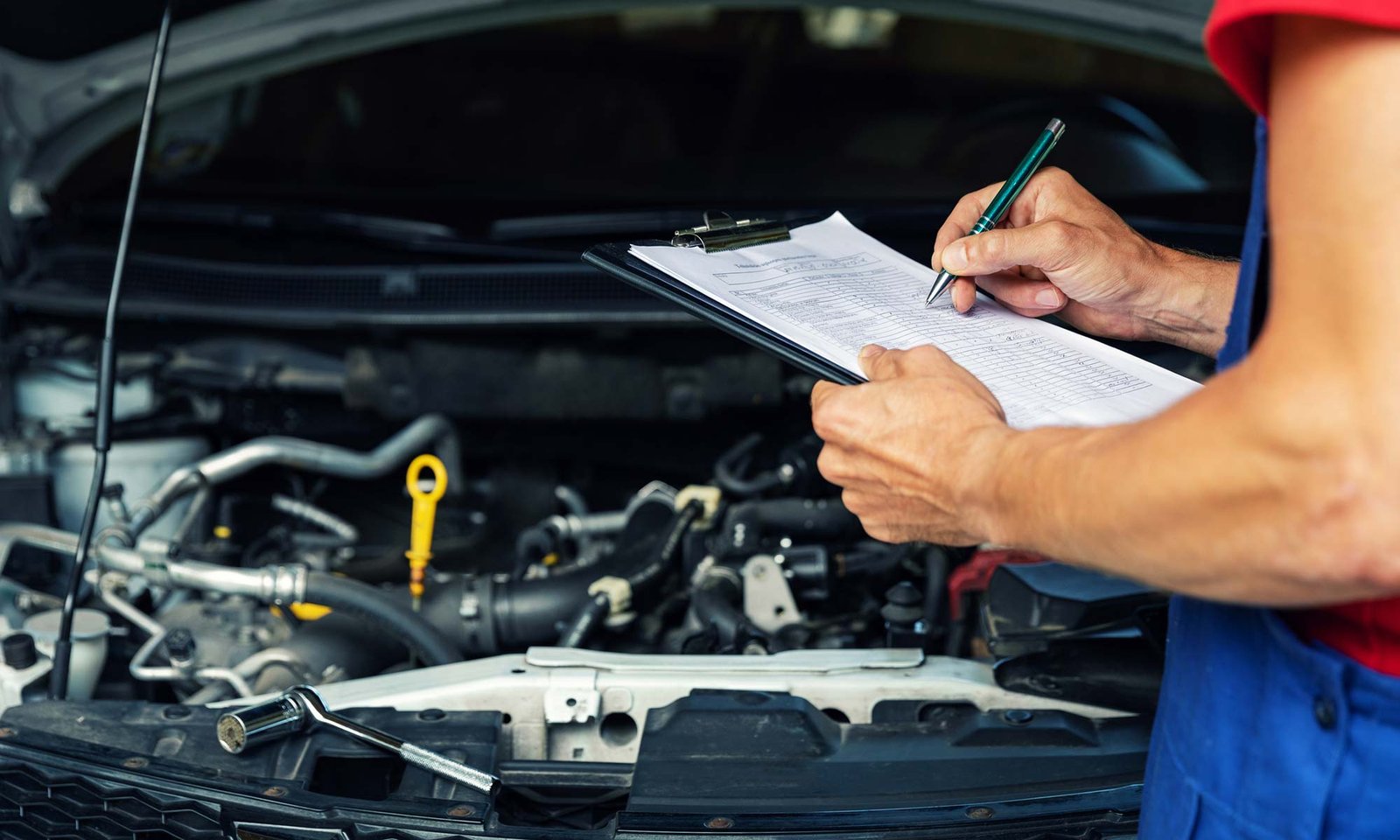In the hustle of daily life, it’s easy to overlook the importance of regularly checking your car. However, the benefits of regular vehicle inspections can’t be ignored. Sticking to a schedule for these inspections is crucial. It’s not just about staying safe, but also making sure your car runs smoothly for longer.
Whether you’ve been driving for ages or just got your first car, knowing why inspections matter can save you lots of hassle and money, and even prevent accidents. Doing a thorough check-up on your car is like giving it a health check. Road safety is crucial for everyone’s well-being. Following a routine inspection plan helps catch small issues before they become big headaches, ensuring you stay safe on the road.
Regularly inspecting and maintaining your vehicle is key to keeping it safe, reliable, and in top shape.People Also Read: Hyundai and Kia Settle Lawsuit Worth $200m Over Vehicle Theft Due to TikTok

What Are The Benefits Of Regular Vehicle Inspections?
Your vehicle isn’t simply a way to get around; it’s a valuable asset that warrants attention and maintenance. Regular inspections are crucial to safeguard its longevity and ensure safety. Here are the benefits of regular vehicle inspections:
1. Ensuring Road Safety
Regular vehicle inspections serve a crucial purpose in promoting road safety. Neglecting maintenance and overlooking inspections can result in mechanical failures or malfunctions while driving, jeopardizing both your life and the lives of others.
Maintaining your vehicle properly reduces the risk of accidents caused by issues like faulty brakes or worn-out tires. By conducting regular inspections, you can identify potential hazards early on and address them promptly, contributing to a safer driving environment for everyone.
2. Maintaining Optimal Performance
Regular vehicle inspections play a vital role in preserving your vehicle’s peak performance. Skilled professionals conduct thorough examinations of multiple components, encompassing the engine, brakes, suspension, tires, lights, and electrical systems.
Detecting and resolving minor issues early, like worn brake pads or fluid leaks, prevents them from escalating and causing substantial damage. Prompt repairs and replacements not only boost your vehicle’s performance but also extend its lifespan.
People Also Read: White House Unveils $623m in Funding to Boost Electric Vehicle Charging Points
3. Preserving Resale Value
Regular vehicle inspections also play a crucial role in maintaining the resale value of your car. When you eventually decide to sell, prospective buyers will conduct their inspections. Having a detailed inspection history and documentation of regular maintenance enhances your vehicle’s appeal and increases its value.
On the other hand, a car that has been poorly maintained and neglected may deter buyers or diminish its resale worth considerably. Consistent inspections are instrumental in upholding your vehicle’s value and attracting potential buyers.
4. Compliance With Legal Requirements
In numerous jurisdictions, legal mandates require regular vehicle inspections for specific vehicle types. These inspections guarantee that vehicles on the road adhere to minimum safety and emission standards.
By adhering to these legal mandates, you not only steer clear of fines and penalties but also play a part in enhancing overall road safety. Routine inspections aid in identifying any potential violations or issues that could render your vehicle non-compliant, enabling you to address them promptly and ensure compliance with the law.
5. Ensuring Roadworthiness
Frequent vehicle inspections play a vital role in confirming your vehicle’s roadworthiness and top condition. Through thorough examination and upkeep of essential components, you can reduce the likelihood of mechanical failures that might result in accidents or breakdowns. Maintaining your vehicle in excellent condition not only safeguards your safety but also the safety of passengers, pedestrians, and fellow drivers on the road.
People Also Read: Japanese Carmakers Toyota and Nissan Enter the Metaverse
6. Cost Savings in the Long Run
Regular vehicle inspections offer potential cost savings by pinpointing and resolving issues at an early stage. Detecting minor problems before they escalate helps avoid expensive repairs or component failures caused by neglect. As previously stated, prioritizing your vehicle’s safety can enhance its overall lifespan and resale worth.
7. Peace of Mind
Having the assurance that your vehicle has undergone regular safety evaluations instills peace of mind when behind the wheel. By tackling potential safety worries, you can alleviate anxiety and drive with assurance, knowing you’ve taken the essential steps to safeguard yourself and others on the road.
8. Early Problem Detection
Regular vehicle inspection checks enable early identification of potential issues before they escalate into major breakdowns or accidents. Detecting problems in their initial stages affords you the chance to promptly address them, potentially sparing you from more extensive and costly repairs in the future.
9. Extended Vehicle Lifespan
Adopting a proactive stance towards vehicle inspections can prolong your vehicle’s lifespan. By attending to maintenance requirements and promptly resolving minor issues, you can prolong the durability of various components, ensuring your vehicle remains dependable and safe over an extended period.
10. Improved Fuel Efficiency
Consistent vehicle inspections also enhance fuel efficiency. By confirming that critical components like the engine, tires, and brakes are in optimal shape, you can optimize fuel economy. Well-inflated tires, a clean air filter, and a properly maintained engine collectively aid in enhancing your vehicle’s fuel efficiency, thereby lowering your overall fuel expenses.
People Also Read: Cost of Charging an Electric car Surges by 42%

Key Components to Inspect
1. Brakes
The brake system stands as a paramount safety element in every vehicle. Consistent examination of brake pads, rotors, calipers, and brake fluid levels aids in pinpointing signs of wear or potential concerns. Squeaking or grinding sounds, diminished braking effectiveness, or a soft brake pedal serve as cues that your brakes may require maintenance.
2. Tyres
Maintaining tires in good condition is crucial for optimal vehicle performance and safety. Conduct routine inspections to monitor tire pressure, tread depth, and overall tire condition. Overinflated or underinflated tires can compromise handling and raise the risk of a blowout, while worn-out treads can diminish traction and extend stopping distances.
3. Lights and Signals
Make sure all external lights, like headlights, taillights, brake lights, and turn signals, are operational. Malfunctioning lights can impair visibility and hinder other drivers from anticipating your actions. Regularly inspect and replace any bulbs that are not functioning correctly.
People Also Read: Ford to Cut 3200 Jobs in Europe and Move Some Work to US
4. Fluid Levels
Ensuring adequate fluid levels is vital for your vehicle’s seamless operation. Routinely inspect the levels of engine oil, coolant, transmission fluid, power steering fluid, and brake fluid. Insufficient fluid levels can result in engine overheating, decreased performance, or system malfunctions. Consult your vehicle’s owner’s manual for recommended levels and intervals for fluid checks and replacements.
5. Battery
Regularly examining the battery can prevent unforeseen breakdowns. Look for indications of corrosion or loose connections, and make sure the battery terminals are tidy and firmly attached. If your vehicle’s battery exceeds three years old, contemplate having it assessed to verify its condition.
6. Wipers and Windshield
Optimal visibility is vital for safe driving. Consistently examine your windshield for any cracks or chips that could hinder your vision. Assess the condition of your wiper blades and replace them if they show signs of wear or leave streaks. Functioning wipers and a clear windshield are essential for ensuring good visibility in adverse weather conditions.
7. Seat Belts and Airbags
Verify that seat belts are in optimal condition and operating correctly. Look for any fraying, cuts, or indications of wear. Test the retraction mechanism to confirm it securely locks. Also, ensure that your vehicle’s airbags are not subject to any recalls and are functioning properly. Refer to your vehicle manufacturer or authorized dealer for any recall-related information.
People Also Read: Tesla Stock Marks Lowest Close In Years As Investors Worry About Musk’s Focus
Conclusion
Regular vehicle inspections are vital for preserving your vehicle’s roadworthiness, adhering to regulations, and safeguarding your safety. Through thorough examination of crucial components and early resolution of potential issues, you can mitigate the risk of accidents, breakdowns, and expensive repairs. A swift approach to vehicle safety can prolong your vehicle’s lifespan, boost fuel efficiency, and elevate its resale value.




